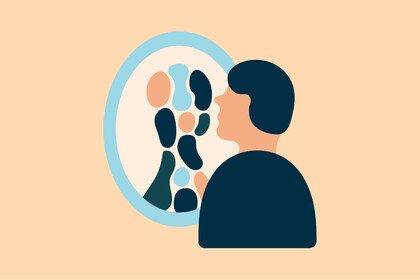
Anxiety and depression in young people: finding the next generation of treatments and approaches
Our mission is to help find the next generation of treatments and approaches to prevent, manage and stop relapse of anxiety and depression in young people worldwide.
To do this, we need to better understand what helps different people the most. Specifically: what works, for whom, in what contexts and why?
What we’re doing and how
We’ve convened researchers across the mental health science community to identify and review the 'active ingredients' of effective interventions for youth anxiety and depression.
By 'active ingredients' we mean those aspects of an intervention that drive clinical effect, are conceptually well defined, and link to specific hypothesised mechanisms of action. In other words, those aspects most likely to make a difference in preventing, treating or managing mental health difficulties.
These ingredients will be different for different people and could span biological, cognitive, relational and societal approaches. For example, they could include practicing relaxation techniques, taking antidepressants or having access to more financial resources.
1. What the evidence tells us
Anxiety and depression are holding millions of people back in life. However, we still know very little about underlying mechanisms of how current mental health treatments work (Holmes et al., 2018) or why they do not work for everyone (Cuijpers, 2017). And there has been no improvement in outcomes over the past 50 years.
The mental health science community is fragmented, with different disciplines taking different approaches and not enough interdisciplinary learning. Researchers lack a common language for describing problems, interventions and outcomes (Allsopp et al., 2019, Krause et al., 2018).
There is even less learning from other areas of academia, including the humanities, law, economics, mathematics and philosophy, where potentially relevant research is taking place (Siegle et al., 2018)
2. Our approach
We’re bringing the mental health science community together to forge a common research agenda around active ingredients. We’re focusing on those most likely to help the most young people in the most contexts, globally. In the process, we’re working to establish a common language – based on a common set of metrics – that all researchers, across disciplines, can use.
In 2020, we launched our first project to build a foundational set of active ingredients, funding 30 teams from across the world to review the existing evidence.
We then commissioned two research teams to explore what had been learned and what was missing, with young people with lived experience of anxiety and depression, researchers, clinicians and other stakeholders from across the world. The qualitative insights from that research have helped us to refine our work by bringing to the fore new voices and ideas from across the mental health science community.
In 2021, we funded another 21 research teams to review an additional set of active ingredients. See all the researchers we've funded so far.
Which active ingredients have we reviewed?
Active ingredients are diverse: some might be about things we can do as individuals, such as exercise, while others may involve structural changes that require government action, such as urban access to green space.
So far, we’ve funded research into more than 40 active ingredients. You can view them all, broadly categorised by their focus of change: in aPDF format [PDF 60KB] or listed below.
Behaviours and activities
- Behavioural activation: increasing engagement with positive activities
- Collaborative goal setting and tracking
- Engagement with the arts
- Exposure: facing one’s fears in a planned manner
- Physical activity: more bodily movement
- Problem solving
- Relaxation techniques: better stress response via relaxation
- Remote measurement technologies: use of remote technologies to monitor changes in biology, behaviour, and environment relevant to the problems
- Self-disclosure: sharing information with others about personal experiences and characteristics
Beliefs and knowledge
- Agency: developing a sense of agency through social action
- Cultural connection: connection with one’s own culture
- Mental health literacy and psychoeducation
- Sense of mattering
- Sense of purpose
- Self-evaluation: improved view of self
- Spiritual and religious beliefs
Brain/body functions
- Circadian rhythms: better sleep-wake cycles
- Gut microbiome: improving gut microbiome function
- Hippocampal neurogenesis: growth of new neurons in the hippocampal region of the brain
- Omega-3 supplements
- Reduced levels of inflammation in the body
- Selective serotonin reuptake inhibitors: use of antidepressants
Cognitive and attentional skills
- Affective awareness: knowing how one feels
- Decentering: better able to shift perspective
- Emotional controllability: beliefs about the extent to which emotions are controllable
- Emotional granularity: improved ability to characterise emotional experiences
- Emotion regulation: improved management of emotions
- Grief reduction: use of strategies to target feelings of grief
- Helpful attentional and interpretational thinking patterns
- Hopefulness: learning to be more hopeful
- Mental imagery: helpful use of emotional mental imagery
- Perfectionism reduction
- Repetitive negative thinking reduction
- Self-compassion
Human connections
- Communication in families
- Digital quality social connection
- Family support
- Loneliness reduction
- Neighbourhood cohesion: increased neighbourhood social connection
- Peer support: support from a peer who has experienced anxiety and/or depression
- School connectedness: sense of connection to school life
- Social inclusion: improved inclusion for those who are minoritized on the basis of their identity (e.g., sexual and gender)
- Social relationships: facilitating improvements in social relationships
- Working alliance: a functional and collaborative relationship with a helper
Socioeconomic factors
- Economic transfers: increased financial resources via cash transfers
- Urban access to green space
3. Our values
We want to help build a more diverse and inclusive mental health science community, underpinned by a shared focus on finding new solutions.
Through our work, we aim to:
- encourage collaboration – mental health science is inherently interdisciplinary. By bringing researchers from different disciplines to collaborate on the same issue, we hope to break down existing siloes and weave knowledge together.
- improve inclusivity and global representation – we’re funding researchers from all over the world and making a concerted effort to involve those in low- and middle-income contexts, to help make mental health science more diverse and inclusive.
- involve people with lived experience – mental health research has had little input from people with lived experience of mental health problems. This is why we’re asking all the research teams we fund to seek input from young people with lived experience and include their insights in their work.
- be transparent – we’re at the start of a journey and know that we can only make progress by acknowledging existing limitations in the field and working together to resolve them. We are keen to learn in public, alongside and as part of the mental health science community, to stop young people being held back by mental health problems.
Who we’re working with
| Active ingredient | Team | Key reference |
|---|---|---|
| Affective awareness: knowing how one feels | Joanne Beames (Australia), Aliza Werner-Seidler | |
| Behavioural activation: increasing engagement with positive activities | Kanika Malik (India), Bruce Chorpita, Vikram Patel | Martin & Oliver, 2019 |
| Circadian rhythms: better sleep-wake cycles | Ian Hickie (Australia), Joanne Carpenter, Jacob Crouse | Carpenter et al., 2021 |
| Decentering: better able to shift perspective | Marc Bennett (UK), Tim Dalgleish, Tamsin Ford | |
| Digital quality social connection | Lindsay Dewa (UK), Emma Lawrance, Hutan Ashrafian, Lily Roberts | Hare-Duke et al., 2019 |
| Economic transfers: increased financial resources via cash transfers | Johannes Haushofer (USA & Kenya), Jimena Romero, Kristina Esopo | |
| Emotion regulation: improved management of emotions |
Alexander Daros (Canada), Lena C. Quilty, Sasha Allen Sarah Skeen (South Africa), Mark Tomlinson, G.J Melendez-Torres |
Pandey et al., 2018 |
| Engagement with the arts | Kamala Easwaran (India), Yog Japee, Tasneem Raja | Hacking et al., 2008 |
| Exposure: facing one’s fears in a planned manner | Jennie Hudson (Australia), Ron Rapee, Viv Wuthrich, Cathy Creswell | Plaisted et al., 2020 |
| Gut microbiome: improving gut microbiome function | Kathrin Cohen Kadosh (UK), Jennifer Lau, Glenn Gibson | Liu et al., 2019 |
| Helpful attentional and interpretational thinking patterns | Jennifer Lau (UK), Victoria Pile, Colette Hirsch | Bagianti et al., 2020 |
| Hopefulness: learning to be more hopeful | Clio Berry (UK), Jo Hodgekins, David Fowler | Esteves et al., 2013 |
| Loneliness reduction | Ellie Pearce (UK), Roz Shafran, Gerhard Andersson | Ma et al., 2020 |
| Mental imagery: helpful use of emotional mental imagery | Victoria Pile (UK), Jennifer Lau, Emily Holmes | |
| Neighbourhood cohesion: increased neighbourhood social connection | Josefien Breedvelt (Netherlands), Claudi Bockting, Claire Niedzwiedz | Kingsbury et al., 2015 |
|
Perfectionism reduction |
Tracey Wade (Australia), Sarah Egan, Roz Shafran | Egan et al., 2011 |
| Physical activity: more bodily movement | Alan Bailey (Australia), Alexandra Parker, Rosemary Purcell | Bailey et al., 2018 |
| Problem solving |
Daniel Michelson (UK), Vikram Patel, Bruce Chorpita Karolin Krause (Canada), Darren Courtney, Peter Szatmari Robyn Mildon (Australia), Jane Lewis, Bryce D. McLeod, Kristina Metz |
|
| Reduced levels of inflammation in the body | Lianne Schmaal (Australia), Yara Toenders | Milaneschi et al., 2020 |
| Relaxation techniques: better stress response via relaxation | Syed Usman Hamdani (Pakistan), Ahmed Waqas, Atif Rahman | Caldwell et al., 2019 |
| Repetitive negative thinking reduction | Imogen Bell (Australia), Mario Alvarez-Jimenez, John Gleeson | Monteregge et al., 2020 |
| Selective serotonin reuptake inhibitors: use of antidepressants | Cath Harmer (UK), Susannah Murphy, Argyris Stringaris, Liliana Capitão | Cousins & Goodyer, 2015 |
| Self-compassion | Sarah Egan (Australia), Clare Rees, Amy Finlay-Jones | Ferrari et al., 2019 |
| Self-evaluation: improved view of self | Faith Orchard (UK), Laura Pass, Brioney Gee, Tim Clarke | Orchard et al., 2019 |
| Sense of mattering | Dean Ho (Singapore), Matt Oon, Theodore Kee | |
| Social relationships: facilitating improvements in social relationships | Paul Badcock (Australia), Kate Filia | Duffy et al., 2019 |
| Urban access to green space | Issy Bray (UK), Danielle Sinnett, Faith Martin | Houlden et al., 2018 |
| Active ingredient | Team | Key reference |
|---|---|---|
| Agency: developing a sense of agency through social action | Mariana Steffen (Brazil), Paul Heritage, Jennifer Lau | Kirkman et al., 2015 |
| Collaborative goal setting and tracking | Jenna Jacob (UK), Inga Spuerck, Milos Stankovic | Feltham et al., 2018 |
| Communication in families | Pete Lawrence (UK), Marian Bakermans-Kranenburg, Pasco Fearon | Lawrence et al., in press |
|
Cultural connection: connection with one’s own culture |
Nicole Anne D’souza (Canada), Srividya Iyer, Jaswant Guzder | Jongen et al., 2020 |
| Emotional controllability: beliefs about the extent to which emotions are controllable | Matt Somerville (UK), Iris Mauss, Amy Harrison | Ford & Gross, 2018 |
| Emotional granularity: improved ability to characterise emotional experiences | Darren Dunning (UK), Marc Bennett, Tim Dalgleish | Barrett, 2006 |
| Family support | Zill-e-Huma (Pakistan), Syed Usman Hamdani, Amy Finlay-Jones | Pedersen et al., 2019 |
| Grief reduction: use of strategies to target feelings of grief | Lauren Breen (Australia), Sarah Egan, Clare Rees | Simbi et al., 2020 |
| Hippocampal neurogenesis: growth of new neurons in the hippocampal region of the brain | Alessandra Borsini (UK), Maura Boldrini | Anacker & Hen, 2017 |
| Mental health literacy and psychoeducation |
Darya Gaysina (UK), Daniel Michelson, Wezi Mhango Sandesh Dhakal (Nepal), Felipe Botero Rodriguez (Colombia), Jennifer Lau |
Wei et al., 2013 |
| Omega-3 supplements | Natalie Reily (Australia), Samantha Tang, Helen Christensen | Zhang et al., 2019 |
| Peer support: support from a peer who has experienced anxiety and/or depression | Magenta Simmons (Australia), Ellie Brown, Sarah Bostock | King & Simmons, 2018 |
| Remote measurement technologies: use of remote technologies to monitor changes in biology, behaviour, and environment relevant to the problems | Annabel Walsh (UK), Valeria Mondelli, Alastair van Heerden | Sequeira et al., 2020 |
| School connectedness: sense of connection to school life | Monika Raniti (Australia), George Patton, Susan Sawyer | Marraccini & Brier, 2017 |
| Self-disclosure: sharing information with others about personal experiences and characteristics | Pattie Gonsalves (India), Daniel Michelson, Sweta Pal | Luo & Hancock, 2020 |
| Sense of purpose | Emily Hielscher (Australia), James Scott, Tara Crandon | Schippers & Zeigler, 2019 |
| Social inclusion: improved inclusion for those who are minoritized on the basis of their identity (eg, sexual and gender) |
Gemma Lewis (UK), Alexandra Pitman, Talen Wright Xanthe Hunt (South Africa), Jason Bantjes, Tom Shakespeare |
van Bergen et al., 2019 |
| Spiritual and religious beliefs | Shilpa Aggarwal (India), George Patton, Nicola Reavley | Yonker et al., 2012 |
| Working alliance: a functional and collaborative relationship with a helper | Jermaine Dambi (Zimbabwe), Rhulani Chauke, Malinda Utete, Rhiana Mills | Ardito & Rabellino, 2011 |
- Amy Finlay-Jones (Telethon Kids Institute, Australia) and Syed Usman Hamdani (University of Liverpool, UK, and Human Development Research Foundation, Pakistan)
- Jenna Jacob and Julian Edbrooke-Childs (Child Outcomes Research Consortium, UK)
Our lived experience advisors
We’re working closely with our lived experience advisors to make sure that we invest our money and efforts in the types of support that are most important to young people.
The advisors help us decide on who to commission and they support our funded researchers to involve young people with lived experience in their research. They are:
- Dhriti Sarkar, India
- Dion Agnuza, Indonesia
- Kamini Hari, United Kingdom
- Margaret Odhiambo, Kenya
- Natasha Swingler, Australia
- Tania Pandia, Indonesia
What we’ve learned so far
Since 2021 we have published two reports:
- Part 1 summarising the findings from the 30 teams we commissioned in 2020 to review the evidence for 27 active ingredients
- Part 2 summarising the findings from the 21 teams commissioned in 2021 to review 19 distinct active ingredients.
We’ve also teamed up with the Mental Elf to share what we’ve learned so far via blogs, podcasts, and videos.
You can read publications by members of our mental health team and some of our funded teams below.
- Sebastian, C.L., Pote, I. & Wolpert, M. Searching for active ingredients to combat youth anxiety and depression. Nat Hum Behav (2021). https://doi.org/10.1038/s41562-021-01195-5
- Wolpert M, Pote I & Sebastian CL. (2021). Identifying and integrating active ingredients for mental health. Lancet Psychiatry, 8: 741-743
- Aggarwal et al., (2023). Religiosity and spirituality in the prevention and management of depression and anxiety in young people: a systematic review and meta-analysis. BMC Psychiatry 23: 729
- Beames et al., (2021). Prevention and early intervention of depression in young people: an integrated narrative review of affective awareness and Ecological Momentary Assessment. BMC Psychology, 9: 113
- Bell et al., (2022). The effect of psychological treatment on repetitive negative thinking in youth depression and anxiety: a meta-analysis and meta-regression. Psychological Medicine, 1-11
- Bennett et al., (2021). Decentering as a core component in the psychological treatment and prevention of youth anxiety and depression: a narrative review and insight report. Translational Psychiatry, 11: 288
- Berry et al., (2021). A Systematic Review and Lived-Experience Panel Analysis of Hopefulness in Youth Depression Treatment. Adolescent Research Review
- Breedvelt et al., (2022). The effects of neighbourhood social cohesion on preventing depression and anxiety among adolescents and young adults: Rapid review. BJPsych Open, 8(4): E97
- Cohen Kadosh et al., (2021). Psychobiotic interventions for anxiety in young people: a systematic review and meta-analysis, with youth consultation. Translational Psychiatry, 11(1): 352
- Crouse et al., (2021). Circadian rhythm sleep-wake disturbances and depression in young people: Implications for prevention and early intervention. Lancet Psychiatry, 8: 813-823
- Daros et al., (2021). A meta-analysis of emotional regulation outcomes in psychological interventions for youth with depression and anxiety. Nature Human Behaviour, 2021
- Dewa et al., (2021). Quality Social Connection as an Active Ingredient in Digital Interventions for Young People With Depression and Anxiety: Systematic Scoping Review and Meta-analysis. J Med Internet Res, 23 (12): e26584
- Egan et al., (2022). A meta-synthesis of qualitative studies of the link between anxiety, depression and perfectionism: Implications for treatment. Behavioural and Cognitive Psychotherapy, 50(1): 89-105.
- Egan et al., (2021). A review of self-compassion as an active ingredient in the prevention and treatment of anxiety and depression in young people. Administration and Policy in Mental Health and Mental Health Services Research, 2021
- Filia et al., (2021). Facilitating improvements in young people’s social relationships to prevent or treat depression: A review of empirically supported interventions. Translational Psychiatry, 11: 305
- Hielscher et al., (2023). Sense of purpose interventions for depression and anxiety in youth: A scoping review and cross-cultural youth consultation. Journal of Affective Disorders, 339: 887-932
- Hunt et al., (2023). Effectiveness of social inclusion interventions for anxiety and depression among adolescents: A systematic review. International Journal of Environmental Research and Public Health, 20(3):1895
- Jacob et al., (2022). Goal setting with young people for anxiety and depression: What works for whom in therapeutic relationships? A literature review and insight analysis. BMC Psychology, 10 (171)
- Krause et al., (2021). Problem-solving training as an active ingredient of treatment for youth depression: a scoping review and exploratory meta-analysis. BMC Psychiatry, 21(397)
- Lau et al., (2021). Promoting helpful attention and interpretation patterns to reduce anxiety and depression in young people: weaving scientific data with young peoples’ lived experiences. BMC Psychiatry, 21(403)
- Malik et al., (2021). Behavioral Activation as an ‘active ingredient’ of interventions addressing depression and anxiety among young people: a systematic review and evidence synthesis. BMC Psychology, 9(1): 150
- Murphy et al., (2021). The knowns and unknowns of SSRI treatment in young people with depression and anxiety: efficacy, predictors and mechanisms of action. Lancet Psychiatry, 8: 824-835
- Orchard F, Westbrook J, Gee B, Clarke T, Allan S & Pass L (2021). Self-evaluation as an active ingredient in the experience and treatment of adolescent depression; an integrated scoping review with expert advisory input. BMC Psychiatry, 21: 603
- Pearce et al., (2021). Loneliness as an active ingredient in preventing or alleviating youth anxiety and depression: a critical interpretative synthesis incorporating principles from rapid realist reviews. Translational Psychiatry, 11: 628
- Pile et al., (2021). Harnessing emotional mental imagery to reduce anxiety and depression in young people: an integrative review of progress and promise. Lancet Psychiatry, 8: 836-852
- Raniti et al., (2022). The role of school connectedness in the prevention of youth depression and anxiety: a systematic review with youth consultation. BMC Public Health, 22(1).
- Reece R et al., (2021). Exposure to green space and prevention of anxiety and depression among young people in urban settings: A global scoping review. Journal of Public Mental Health, 20(2): 94-104
- Somerville et al., (2023). Emotion controllability beliefs and young people’s anxiety and depression symptoms: a systematic review. Adolescent Research Review
- Toenders et al., (2021). Inflammation and depression in young people: A systematic review and proposed inflammatory pathways. Molecular Psychiatry
- Vostanis et al., (2022). Youth and professional perspectives of mental health resources across eight countries. Children and Youth Services Review, 136 (106439)
- Wade et al., (2021). A realist synthesis of websites containing content on perfectionism: Are the descriptions and advice empirically supported? BMC Psychology, 9(119)
- Walsh et al., (2024). A collaborative realist review of remote measurement technologies for depression in young people. Nature Human Behaviour
Funding
We’re funding research to help create transformative change in early intervention for anxiety, depression and psychosis.
There are currently no open funding opportunities for Mental Health. Learn more about the funding we provide.
Our team

Inês Pote
Research Lead, Evidence
Wellcome

Cristina Doherty
Project Officer
Wellcome

Saz Ahmed
Senior Research Manager
Wellcome
If you have any questions or comments about this work, email activeingredients@wellcome.org



